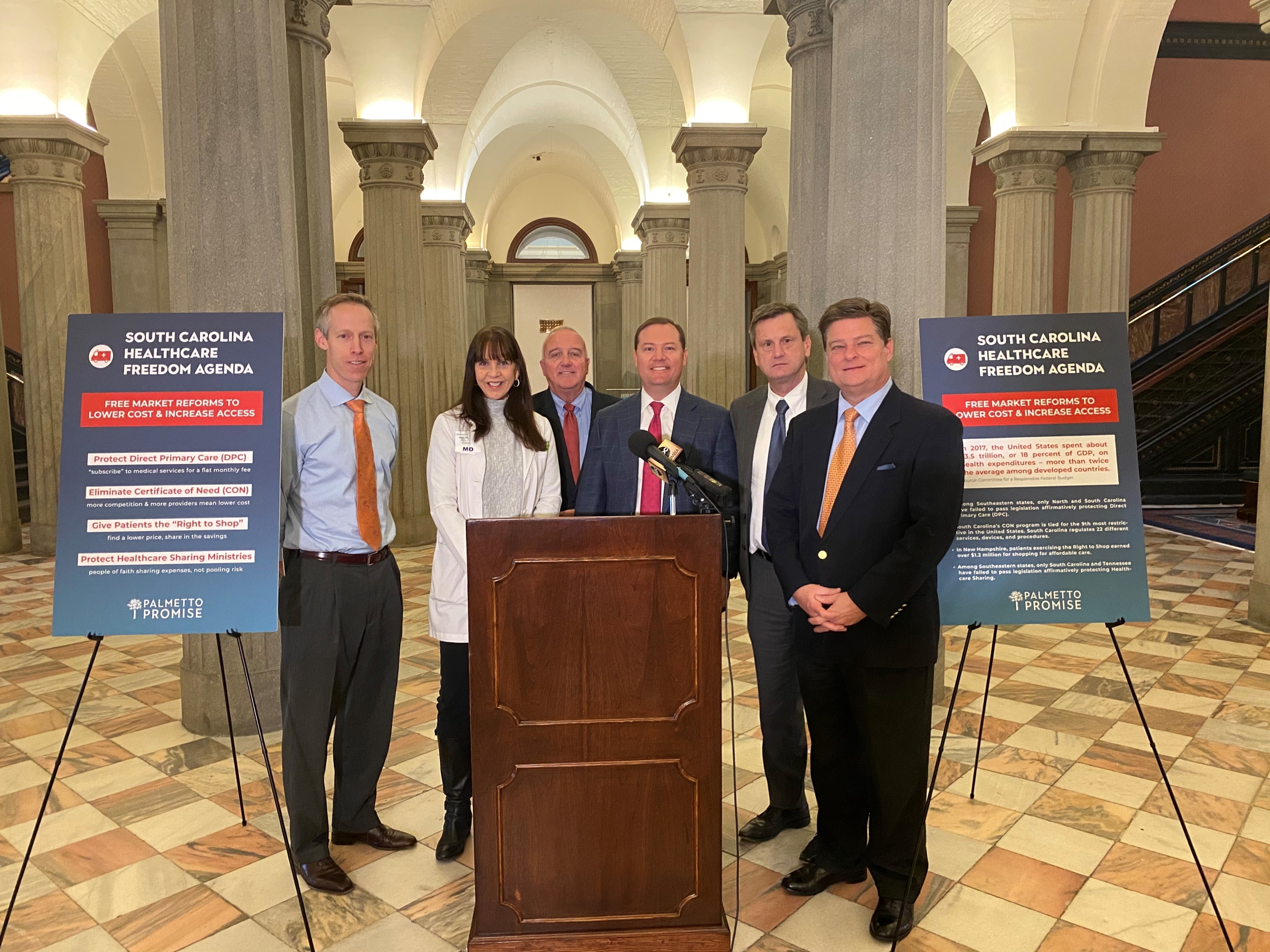What Can Other States Learn From South Carolina’s Successful CON Law Repeal?
Aubrey Wursten writes for the Independent Women’s Forum about South Carolina’s Certificate of Need (CON) repeal and cites Palmetto Promise Institute research on the topic.
In 1987, the federal government repealed the certificate of need (CON) mandate it had enacted 13 years before. During those 13 years, any state wishing to receive subsidies, such as Medicare, was required to demand any new healthcare business to apply for a certificate of need, ostensibly to prove that it was needed in the community where it was to operate.
Unsurprisingly, 49 of the 50 states promptly enacted CON laws, with lone holdout Louisiana eventually adopting them as well.
This did not mean the businesses were proving they were qualified, safe, licensed, or even wanted, at least by the community at large. Rather, they were demonstrating to the legislature (often while their would-be competitors argued against them) that the community could not safely survive without them.
These laws, although predictably popular with existing hospitals, were controversial with other residents from the start. Yet, 36 years after the federal government repealed its law, 35 states still have CON regulations. Organizations and individuals have fought for repeal but with little success. You can’t fight City Hall, and healthcare behemoths have quite a bit of say in what happens at City Hall.
This is why, when a state like South Carolina manages to virtually eliminate its complicated CON program in a matter of months, CON opponents in other states should probably take notes from its playbook.
In an article for Forbes, Josh Archambault and Oran Smith give readers a few pages, which are summarized here:
Bring your best research to the debate.
The Mercatus Center has put together an exhaustive body of research on CON laws from every state. South Carolina’s Palmetto Promise Institute cited this study when it was trying to repeal the South Carolina laws, and any other state can likewise use the Mercatus state-specific guides.
Educate.
Most people have experienced the agony of long hospital wait times (averaging a staggering 286 minutes in Washington, D.C., according to U.S. News and World Report), but few patients complain to the receptionist about how certificate of need laws are holding up the line. Overturning a law that many people don’t know exists requires that people who are aware of it educate those who aren’t.
South Carolina advocates held town halls with think tanks and medical associations, where voters could learn more about the laws. They also spoke to political candidates, so they would be familiar with CON legislation prior to entering office.
Show up.
Town halls are also where legislators have to face their constituents. Signing an email petition may be better than doing nothing, but nobody takes a form letter as seriously as an in-person visit. In a study shared with Wired, the OpenGov Foundation found that interns working for legislators often just use emails to gauge whether voters are for or against a measure. This gives voters no opportunity to really make their case or to cite personal experiences.
Make something good from a terrible situation.
Milton Friedman observed that “there is nothing so permanent as a temporary government program.” Most of the time, this presents a problem. But during the COVID-19 pandemic, the Pacific Legal Foundation noted that the disaster resulting from CON laws led 24 of the 38 CON states (including South Carolina) to temporarily suspend some of them. This gave both voters and legislators a chance to see how the system could operate in their absence and to make the temporary change permanent.
Decide if you’re willing to compromise.
Finally, CON opponents need to decide when (and if) they are willing to budge. For example, repealing a regulation may be easier if you agree to a sunset provision instead of demanding that the law be abolished tomorrow.
The South Carolina legislature agreed to sunset the laws in three years, with areas that have no current hospitals able to abolish the hospital CON rule immediately. The legislature also kept CON requirements in place for nursing homes.
Like the rest of this list, this item is best done before entering the town hall (or legislative session). CON opponents in South Carolina entered the arena prepared, and they managed to achieve a goal that many people probably thought was insurmountable.




